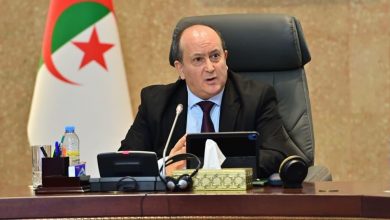Algiers – Participants at a roundtable on migration governance in Algiers on Monday praised Algeria’s approach to addressing the issue, particularly through identifying its deep-rooted causes.
Organized by the International Organization for Migration (IOM) in Algeria with support from the United Nations Network on Migration, the roundtable featured key players in the field of migration, including UN representatives, international partners, and representatives from the embassies of countries with migrant communities in Algeria.
Participants discussed shared challenges and explored innovative solutions to promote safe, orderly, and regular migration and asylum management in Algeria and the wider region.
In his opening remarks, Rachid Meddah, Director General of Consular Affairs and the National Community Abroad at the Ministry of Foreign Affairs, stated that Algeria’s approach in this field is based on several “fundamental principles,” including “consideration of the specificities of each country of origin.”
He explained that migration is a “complex” and “multidimensional” human phenomenon, primarily affecting vulnerable groups such as children, women, and the elderly, who are exposed to various forms of exploitation.
“Algeria has ratified most international human rights conventions and is committed to the spirit of solidarity and cooperation in this context,” Meddah added.
Meddah emphasized that Algeria’s approach also focuses on addressing the root causes of illegal migration, particularly political instability and armed conflicts.
He praised the significant efforts made by the IOM in coordination with Algerian authorities, stressing the need for a comprehensive approach.
This initiative has resulted in an action plan to facilitate the return of migrants to their countries of origin under the best possible conditions. Meddah noted that “Algeria, due to its strategic position, recent economic development, and stability, has transitioned from being a transit country to a host country for migrants.”
Meddah highlighted that Algeria combats this phenomenon using its resources and has not received any external assistance.
In this context, the Foreign Ministry official noted that Algeria refrains from using migration as a “pressure” or “blackmail” tool in its policy, unlike other countries. Instead, it adopts a “humanitarian stance” rooted in assistance and cooperation.
The diligent work led by the IOM has enabled the implementation of a voluntary return program for 10,000 undocumented migrants to their countries of origin. Meddah mentioned that “a tripartite committee involving the IOM, the European Union, and the Algerian government has been established to find interactive and complementary ways to fund this operation and assist migrants in returning to their countries.”
Meddah also announced the creation of the Algerian Agency for International Cooperation for Solidarity and Development, funded with one billion dollars to initiate development projects in the countries of origin. This agency has already completed several projects in Niger, Mali, and Burkina Faso and is ready to evaluate and support necessary projects proposed by African countries.
Alejandro Alvarez, UN Resident Coordinator in Algeria, highlighted that migration is an “extremely difficult” issue that cannot be handled by a single country or region. He praised the “evolution and improvement of the partnership with Algeria, which does not use migration as a political bargaining chip.”
Alvarez also noted the “absence of hate speech” towards migrants, who are received in good conditions, unlike in some other countries in the region.
U.S. Ambassador to Algeria, Elizabeth Moore Aubin, pointed out that international experience has shown the enormous global challenges that cannot be managed by one country alone. She reiterated her country’s support for the mechanisms established by Algeria to address migration.
Algeria’s approach to migration governance




